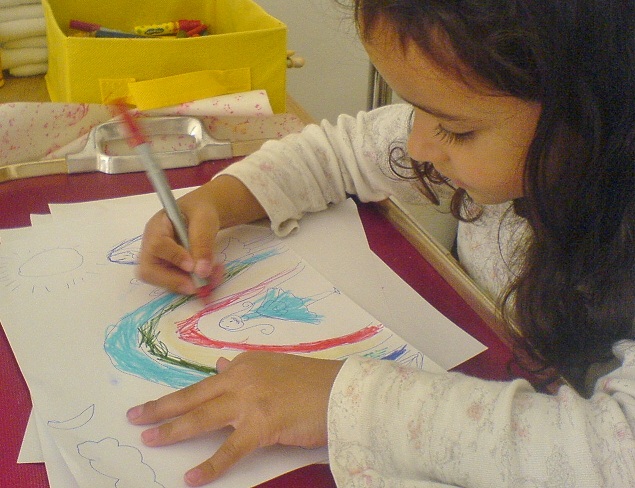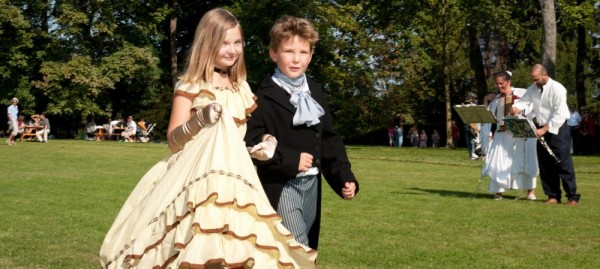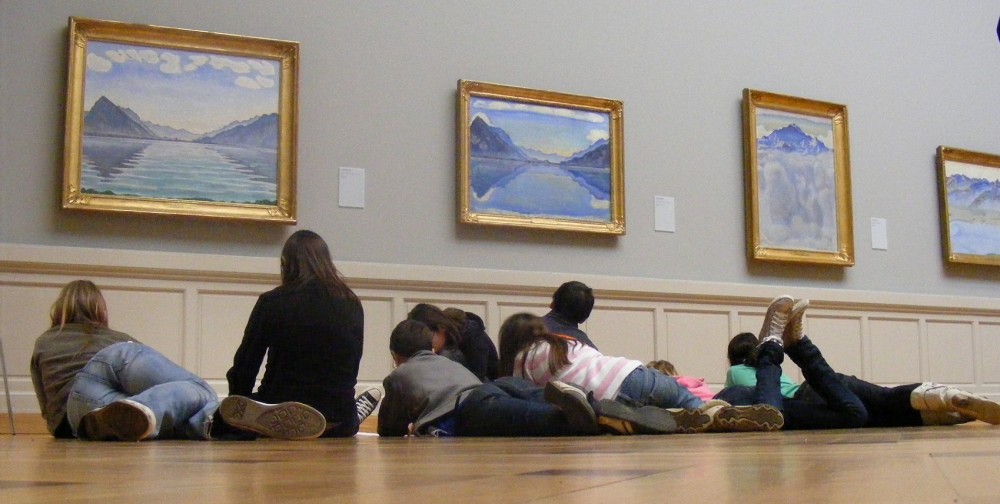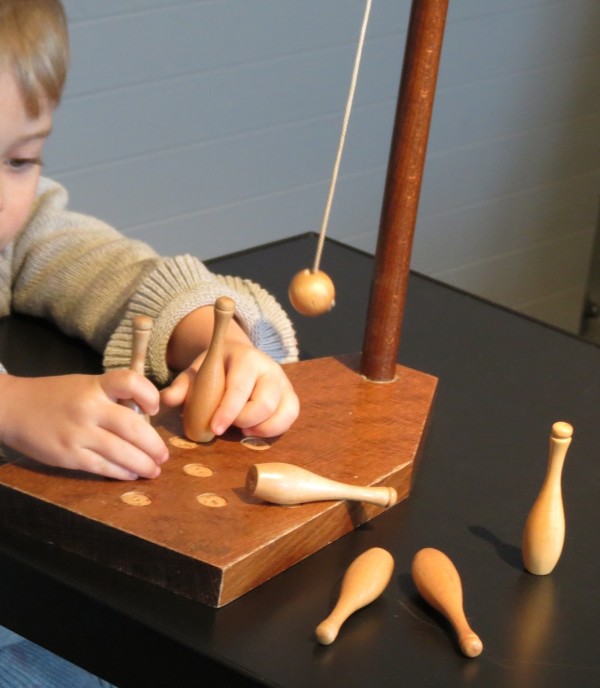I don’t pretend I got it all right and my daughter does make mistakes as she is learning both English and French. But speaking French to her has made a difference to her life. Not only she learnt and assimilated it intuitively, but she enjoys it and – most importantly – for her the process is relatively painless.
When she was born I was so happy that there would be someone in the home whom I could converse with in French. Circumstances made it difficult to get her into a nursery so she stayed at home until she was three and a half. During this time I sometimes wondered whether I should speak to her in English at all. Of course with my husband I would, so English was not completely ‘foreign’ to her. My husband talked to her in English and Bengali.
Once day while in a playground a Russian lady gave me this advice: if you want her to become bilingual, talk to her in French only. And let your partner do the English talking.
Reassured that it was good to talk exclusively in French, I carried on and could not wait until she started talking. Her first words came quite late: past the age of 2, I was starting to get worried. But she soon caught up with confidence and she has grown to be the bubbliest character in our family.
When she started nursery, it was a little bit difficult for her to understand English as she had stayed with me all this time. A new teacher started, she was herself bilingual and my daughter immediatly connected with her, just knowing that one person could understand French helped her find her place at the nursery. Her English then developed a bit faster.
Reception was a big step as she started full-time education in an English school, including reading and writing. Her progress in English was outstanding, and at home she at occasionaly only wanted to talk English.
I resisted, at times giving in (‘ok, I’ll speak to you in English this evening, and tomorrow we’ll get back to French as usual’). Cousins and friends would frequently send her books and DVDs in French, like Barbapapa, Martine, and my mother found her some really attractive basic spelling and handwriting exercise books too.
I let her choose when to practice, sometimes she let me choose, but I mostly let her lead the way, always talking in French when alone with her.
Once she got really confident at reading in English she suddenly turned her back to her English schoolbooks, for no other reason than ‘having other things to do’. The teachers tried to motivate her and she still read at school, but at home she would leave her school books inside her ‘bookbag’.
However, I noticed she was choosing French books from the shelves, and eventually started teaching herself to read them. She wanted to know what it said, and with very little of my input she soon read in French.
Writing is something she is trying out now. She writes in French how she hears it, and I chose to take the pressure-less approach: I don’t correct her unless she asks me too. First she never asked me to correct her , she just showed me and asked me how it was. ‘Very good ‘ I would say, impressed by her willingness and efforts. If she asked if it was well spelt, I would anwer: ‘It’s not perfect, later on you can learn more spelling but for now keep writing you’re doing fine.’
She kept on writing, and this summer when doing postcards to the French family she, for the first time, asked me detailed spelling of the words that she wanted to use.
Now that she’s gone back to school her French books and spelling practice are back on the shelves as she concentrates on her English. It’s fine by me, there’ll be plenty of time at mid-term.

Text and photo copyright C.A. 2012






6 comments
We too were told that as parents we should speak only in our respective languages – mine being English, my husband’s French. We found, however, that we communicated best in our own pidgin, the language we fell in love in, a mishmash of the two. And that is how we’ve always spoken to our children, first in America and now in Switzerland. Both are perfectly bilingual, in local schools, social, and while they do have a natural preference for English, they flow from one to the other seamlessly depending on whom they’re speaking to. My 8 year old has an additional preference for reading in English, though she’s never been taught more than a few pointers “ph” says “f” and the like. She devours English (language) classics while keeping up with her (albeit small) class reading load. I don’t think there’s just one way to do it, make it stick, create little linguistic champs. Each family has to see what works for them as a family, as parents, and in our case as a couple. You seem to have found a great path for your daughter. Keep up the good work! x jess
Dear Jess, thank you for your comment. Yes, each child and each family approach bilingualism differently and Céline is doing a great job with her daughters. I found that my children love “mixing up” their languages too which creates a fascinating “secret” language between them – my husband and I have also developed our own English-Italian “pidgin” which somehow seems to make sense for us.
It sounds like your children are thriving and passionately enjoying their languages, and this – as Céline says – it’s the best thing of all.
Thank you again for reading ! Take care, Michela & Céline
Dear Jess
We love to hear from other parents as we too often assume that other families think the same way. It would be quite enlightening to know about about your own experience, for example words that you use at home (pidgin), how the children make the dinstinction between the languages, and how your daughter developed such a liking to English books?
Thank you and hope to read you soon,
Céline
I love these experiences, thank you! As one of the only people who speak to my children (age 2 and 4) in English, I’ve made some interesting observations. For example, I speak very bad Serbian and wind up teaching them bad grammar … therefore, I only speak to my kids in English now. When they hear me speak in Serbian when we’re out-and-about, they either congratulate me on a job well done, or they correct me! Laura
Hi Laura,
thanks for your comments – you’re absolutely right, it’s never easy to help our kids navigate a bilingual or multilingual learning experience. With mine, I found that each of them has approached it differently (planning a new post about that soon!) which I find amazing considering they’re all part of the same family, they all share the same routines and family dynamics etc.
I definitely think that they’re little individuals first and foremost ! Thankfully mu husband was raised as a bilingual child too, so he is very chilled about it and keeps calm even when things seem to turn difficult.
I also found that the best incentive for them is playing with other kids, and when play is the medium, the language becomes stronger very quickly (much stronger than when it’s just boring old mummy speaking it !!).
Thank you for reading ! Best regards Michela xx
Dear all,
I’m glad to read all your comments, I’m mother from a 2 years old, till I have spoken only portuguese with him, someone said to me as I had started speak portuguese I should stay in portuguese, even thought I thought start speak french and let the nany speak portuguese. Somenone has an advice to me please.
Thank you for reading! Kind Regards, Debora